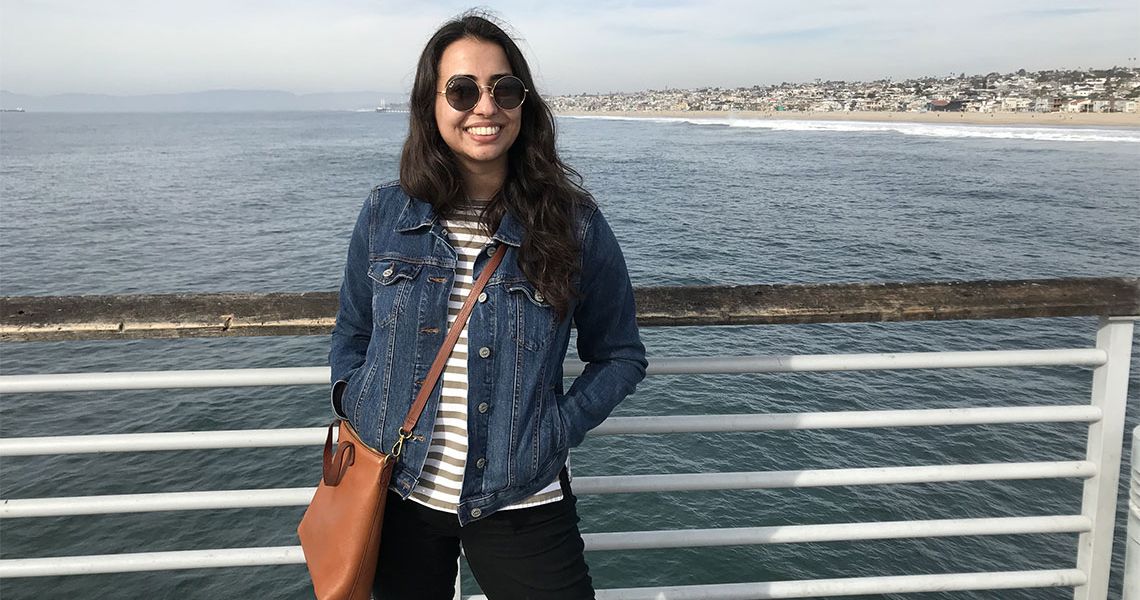It was a typical Thursday evening for the average first-year medical student. I was one week out from taking my renal exam, and going through my usual study plan; reviewing lectures, watching “Pathoma” and “Boards & Beyond” videos, and flipping through my flashcards. Amid studying I checked my email to see if there were updates from the administration on the COVID-19 response plan. Then a message came in that made me realize my education, my family, and the world had changed.
At that point, in mid-March, many students had been in quarantine for about a week. When my class received news that the rest of our CPR (cardiology, pulmonary, renal) block would be completely online, many of us returned home. I spoke with my parents about my options, and chose to stay with my aunt and uncle in Maryland until after spring break.
At the time, I figured I would be with them for three weeks and then life would return to normal. I was thankful for the opportunity to be out of the city for a while and have the support of my extended family for a few weeks while waiting out the pandemic. None of us could have predicted what was going to happen.
I hesitantly clicked on the email “March 19 — Updates for the MD Classes.” The administration decided to move classes completely online for the rest of the school year. The gravity of the situation finally sank in; this was no longer going to be an extended slumber party with my cousins, but rather a months-long refuge. I felt trapped and helpless. I wanted to return home to my family, but the world had shut down and it was no longer safe to travel. I was overwhelmed with emotion and for the first time during the pandemic I felt the tears coming. My extended family reassure me that I was more than welcome to stay with them as long as I needed. My aunt jokingly referred to me as her third adopted daughter. I felt relieved to have a safe place to stay and the support of my loved ones.
As the pandemic took hold, my medical school class sprang into action to help the community. I watched many of my classmates volunteered on the frontlines at COVID-19 testing sites, raised money to send supplies to hospitals, and donated their time to create a COVID-19 response guide or babysit for health care workers treating patients at the George Washington University Hospital.
As medical students, we all share a strong desire to serve our community. It was inspiring to see how quickly my classmates answered the call to action. I wanted to do my part to contribute to the efforts, but I was acutely aware that as a first-year medical student, my skill sets were not yet advanced enough to serve in a more frontline role.
However, I was still able to support my classmates, volunteering my skills in design and editing to help with a COVID-19 response guide for the D.C. community, which eventually was turned into a website.
This realization of my limited clinical skills motivated me to take advantage of my additional free time to study harder so that I could be a better physician in the future. I poured my time and effort into making the most of our online classes. My grades significantly improved during this time, in part because I had fewer distractions.
However, the transition to online classes wasn’t always easy, and I missed in class interaction with my classmates. Some classes also had to be postponed because they involve concepts and skills that would be difficult to learn online.
While we were unable to have these in-person classes and experiences in first year, our class is living through an experience some physicians would never face in their lifetime. We are learning firsthand about what it means to serve in a time of crisis, better understanding flaws in the U.S. health care system, trial and error effort to find treatments, and the research it takes to develop a vaccine. During first-year we only spent a little time covering coronaviruses in our infectious disease curriculum, but I am sure in the years to come students will have an extensive education in this area featuring guest speakers and research opportunities.
The lessons I have learned from the pandemic have been more profound. It has re-confirmed my desire to pursue a career in medicine. Despite the hardships I have seen health care workers face across the country as they provide care to patients, I feel incredibly privileged to one day join my future colleagues on the frontlines.
Kiana Khosravian is a second-year medical student at the George Washington University School of Medicine and Health Sciences.



